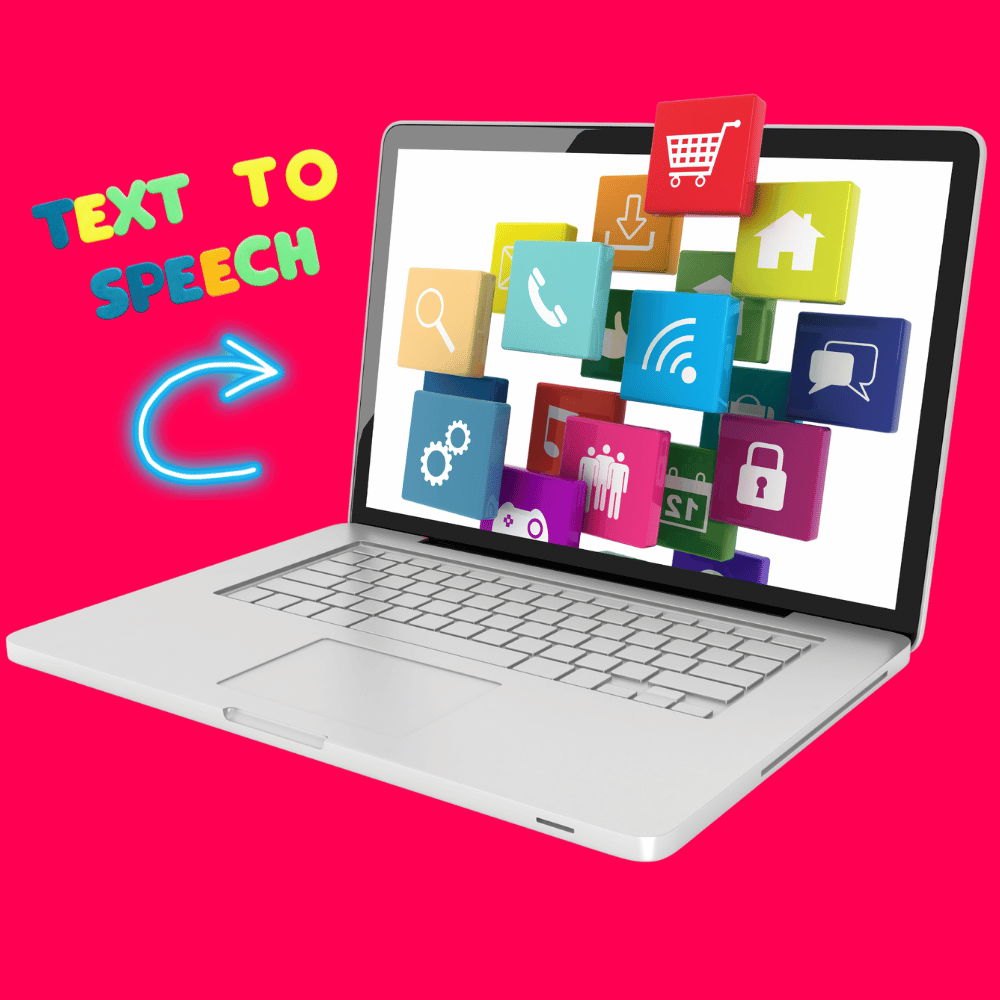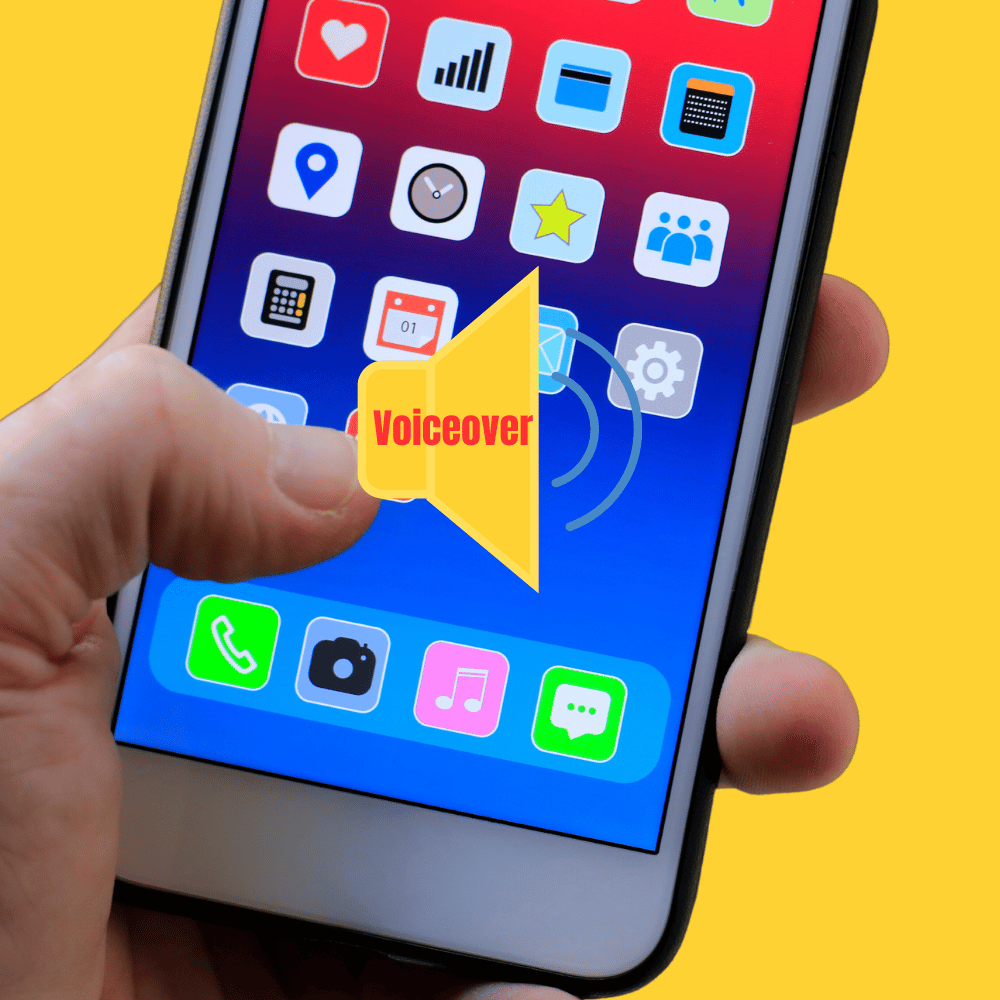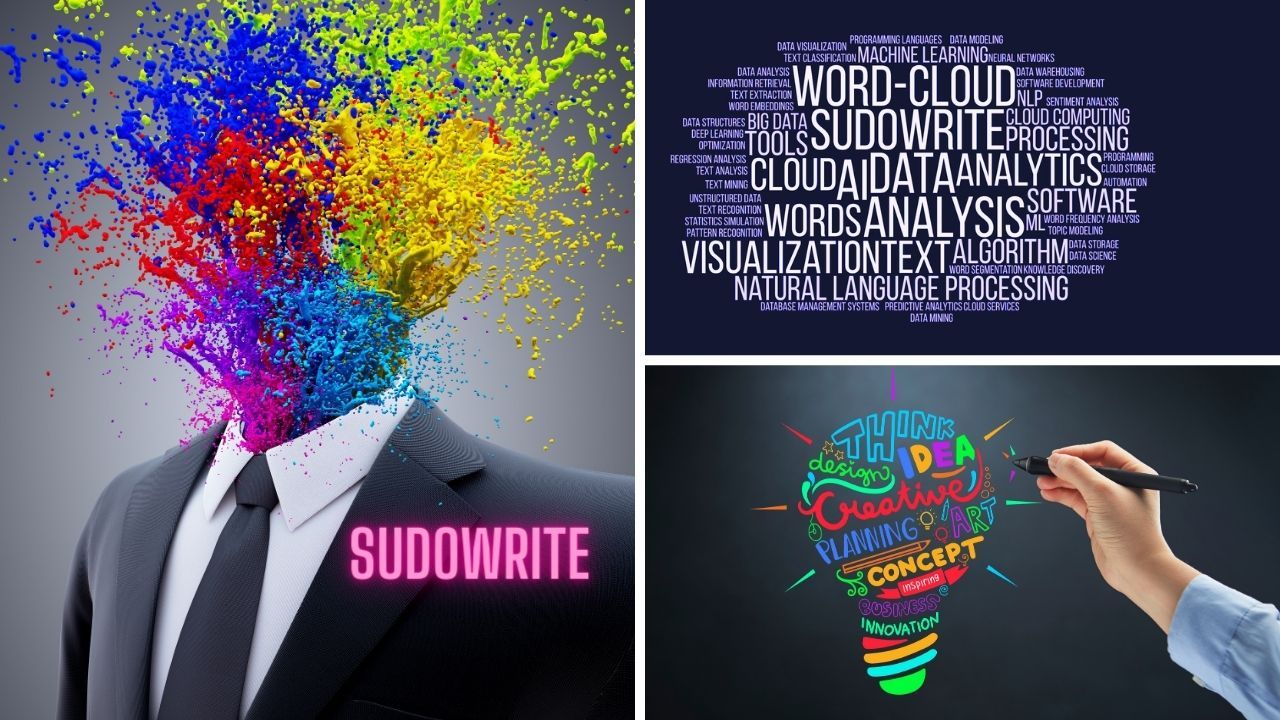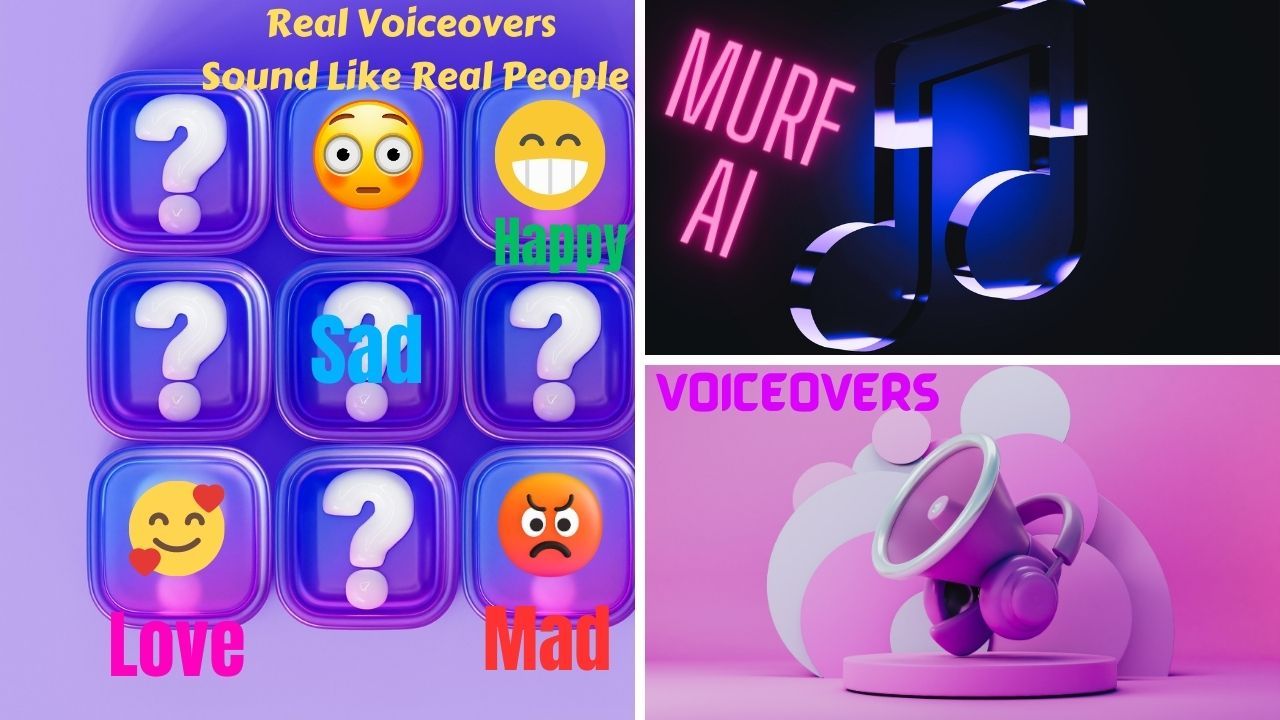As we immerse deeper into the digital age, the barriers between humans and technology continue to dissolve. Among the many incredible breakthroughs is Text-to-Speech (TTS) technology.
This marvelous invention converts written text into spoken words, paving the way for myriad applications – from aiding visually impaired users to providing voiceovers for multimedia.
But like all technologies, TTS has its disadvantages. Let's delve into these limitations and explore how Artificial Intelligence (AI) is heralding solutions and promising advancements for the future.
Short Summary
- Text-to-Speech technology has advanced significantly yet still lacks the nuances of human speech.
- It can cause pronunciation errors and a lack of engagement due to its robotic sound, as well as reduced comprehension, memory retention, and cognitive processing.
- The future of TTS focuses on overcoming these drawbacks through AI/ML advancements, improved personalization & customization options, and emotion/context recognition.
The Limitations of Text-to-Speech Technology

Text-to-speech technology has advanced significantly over the years with increasingly sophisticated AI and machine learning algorithms producing more natural-sounding voices.
Despite these advances, it cannot completely replicate human speech, which leads to certain limitations such as perceptible differences between computer-generated speech and voice recordings of humans, pronunciation errors occurring in uncommon or foreign words, emotion, and intonation may not being accurately conveyed while long pauses or unnatural pacing can result from interference or background noise when using this type of technology.
Text-to-speech apps have greatly helped enhance accessibility options for users along with a text-to-speech program that promotes progress on this front.
Accessibility Concerns and Limitations

TTS technology, such as TTS tools and software, has made strides in increasing accessibility for people with visual impairments or learning challenges. There are still issues when it comes to delivering a holistic answer for all users. In this section, we will talk about the difficulties that TTS technology is facing regarding the visual impairment of clients’ ability to read aloud and language boundary troubles. Speech disabilities can also be an issue not yet addressed by existing solutions effectively enough.
Inadequate Solutions for Visually Impaired Users
TTS technology can be advantageous for those with a visual impairment as it gives them the opportunity to access material without tiring their eyes. Unsatisfactory results may occur from TTS systems that don’t enable sufficient customization or speech sounds too artificial.
Visually impaired users may experience difficulty browsing sites having convoluted structures or lack of accessibility due to the restrictions posed by employing TTS technology.
Speech Disabilities
TTS systems that don’t replicate the user’s language accurately can pose difficulties for those with speech disabilities. This is because a wide range of languages, regional accents, and dialects may not be supported by TTS technology making communication more difficult or even impossible. Issues arise due to vocal inflections such as intonation being lost which impede users from comprehending spoken words properly when using these kinds of systems.
Language Barriers
TTS technology still faces language barriers due to the limitations of its systems, which only support a limited selection of languages and are unable to convey regional accents or dialects with accuracy.
This has caused confusion, and dissatisfaction amongst users when their native tongue isn’t accurately represented by these TTS software.
To help overcome this issue, it is essential that advances in TTS technologies continue in order for them to include an even wider range of supported tongues as well as faithfully reflect local accentuations and colloquialisms.
Decreased Retention
Retention of information may be more challenging when using TTS-generated speech compared to other forms, such as reading or listening to human speech.
This is mainly due to the fact that users can quickly become distracted while trying to absorb content through this technology, making it difficult for them to remember what was said afterward.
The efficiency of TTS will vary between each individual depending on certain factors like their attention span and learning preferences which would affect how effectively they take in the information presented by means of voice output.
To get a better understanding of TTS solutions, people must play around with settings ranging from selecting an appropriate speed for performance playback all the way down to finding voices that are captivating yet easy enough to comprehend.
Accessibility Concerns and User Preferences

It is important to consider the limitations of TTS technology and how it may affect user adoption. Visually impaired users, for example, are not always able to access this technology easily while other users can find synthetic voices off-putting. To gain a more comprehensive understanding of these potential barriers, we must take an in-depth look at them.
TTS has many benefits that can be enjoyed by different types of people. Its restrictions should also be acknowledged when weighing up whether or not this type of tech will work effectively with various groups. There is still much value provided by TTS, but some individual preferences and accessibility issues need to be taken into account before fully embracing the use of such tools for all intended audiences!
Inadequate Support for Visually Impaired Users
The application of TTS systems for individuals who are visually impaired has certain shortcomings, including difficulties with navigation and functioning within the smartphone environment as well as unreliable performance in real-world environments. Some software may be inaccessible to this particular group of users.
To ensure that everyone is able to make full use of TTS technology regardless of their abilities, a variety of alternative input methods such as voice commands and text-to-speech have been proposed alongside providing visual cues or other forms of feedback.
As development continues on speech recognition technology, it is anticipated these measures will Improve accessibility features ensuring all users can benefit from its applications without feeling excluded or overlooked while having an enjoyable experience doing so.
User Discomfort with Synthetic Voices
When using TTS technology, some users may find the synthetic voices produced by speech synthesis disagreeable or troublesome, which can cause an unpleasant experience.
This could be due to a number of reasons such as poor pronunciation, robotic sound, lack of emotion in their expression, and unnatural pauses between words being said. It might also feel uncomfortable for people if they do not think that this voice matches theirs – creating a feeling that there is no connection with the technology itself.
It is important then for upcoming TTS systems to take into account these difficulties by providing more realistic sounding voices including emotional nuance plus allowing individuals far greater choice when personalizing settings so that they select one which suits them best leading to much better engagement and satisfaction levels overall while interacting with them via text-to-speech outputs.
As Research goes ahead on improving upon existing methods used in constructing artificial (synthetic) audio out of written texts. Expectations are high that any discomfort will continue to reduce significantly, resulting ultimately in improved user experiences all around associated with the usage of modern Speech Synthesizer devices/technology.
Artificial Intelligence and Natural Language Processing
The development of artificial intelligence and natural language processing has enabled TTS technology to create human-like speech from a text by understanding the content for a more accurate and realistic sounding result. AI is also used to heighten the quality, clarity, and overall performance of these systems, which improves user experience too.
Although there are some hindrances present in this current moment like difficulty generating complex sentences or demanding plenty of resources from computing power, its potential future looks encouraging with Improvements that can be expected in terms of accuracy and emotional expression making it even more useful for users.
Enhanced Customization and Functionality
The future of TTS technology is poised to offer users a wide range of customization options and improved functionality. This will enable them to create voiceover content more cost-effectively, while also having access to natural and expressive speech synthesis for learning purposes as well as communication.
Artificial Intelligence (AI) combined with Natural Language Processing (NLP) can help tailor the language features according to user preferences so that they get an optimal experience when using these systems.
Advanced advances in this field promise seamless, engaging experiences which not only enhance accessibility but may even surpass human speech at certain levels! Ultimately making TTS a powerful tool when used correctly by individuals across many domains such as education or business where efficient communications are key success factors since conversation often has layers upon layers beyond words alone - the way we say things carries tone & emotion too!
To sum up, advancements made in AI algorithms behind synthesized voices could result in enhanced flexibility regarding selectable languages plus personalized assistance providing meaningful aid overall usage scenarios. Allowing people around the world to use software solutions tailored to their needs.
Emerging Trends in Text-to-Speech
Another realm where TTS is gaining traction is the healthcare and wellness sector. The convenience and accessibility of natural-sounding voices have profound implications:
- Medical Instructions: Patients can receive medication or post-surgery instructions in a clear, understandable manner. This minimizes misunderstandings and enhances patient safety.
- Mental Wellness Apps: Guided meditation and mindfulness apps are increasingly incorporating TTS. The calming, natural voices assist in relaxation and stress relief.
- Assistance for the Elderly: For senior citizens, especially those with age-related vision impairments, TTS can be a companion. From reading out news to setting reminders for medications, TTS voices lend a helping hand.
Integrating TTS in Smart Homes
The era of smart homes is upon us, and TTS is at the heart of this transformation. Here’s how:
- Home Automation: Imagine walking into your home and being greeted by a natural voice that updates you on your appointments, reads out important emails, or even narrates a recipe. This is the potential of integrating TTS in home automation systems.
- Security: Advanced TTS voices can alert homeowners of security breaches or even act as a deterrent for potential intruders by simulating human presence.
Business Opportunities with Text-to-Speech
As TTS technology matures, it offers a plethora of business opportunities:
- Personalized Marketing: Brands can craft personalized auditory messages for their consumers, enhancing engagement and brand loyalty.
- E-commerce: Virtual shopping assistants with natural voices can guide users, offer product information, and even upsell, leading to improved sales.
- Surveys and Feedback: Instead of traditional text-based feedback mechanisms, businesses can deploy TTS voices to gather feedback, making the process more interactive and effective.Ethical and Privacy Issues Surrounding TTS

With TTS technology becoming more and more advanced, ethical considerations, as well as privacy issues, arise. There is a worry that computer-generated or recorded voices could be used to copy one’s voice for illegal purposes.
In this section, we are going to delve into the moral concerns and personal rights matters surrounding this innovation: from cloning of vocal utterances, ill use of data, legal implications, and compliance with regulations.
Voice Cloning
Voice cloning presents a number of ethical issues, such as creating deepfakes or imitating individuals without their consent. It entails the recording and replication of someone’s voice through a TTS model.
Although it can be utilized for beneficial purposes like creating voiceovers for content creators, there is also potential to exploit this technology illegally, including identity theft and other types of fraud activity.
We must consider the moral implications that come with using these kinds of applications when developing them further. While they may have positive uses in media production projects requiring simulated vocalizations, it could likewise lead to misuse if not handled responsibly.
Data Misuse
When using TTS technology, it is important to ensure that any data collected and stored from users has appropriate security measures in place. This includes obtaining their consent prior to such actions.
If not taken into consideration, the information could be exploited for unlawful activities like identity theft or fraud. To prevent this sort of misuse companies should make sure all safety protocols are followed as well as gain user permission beforehand when accessing their personal info.
Legal and Regulatory Challenges
As TTS technology continues to progress, fresh regulations must be created in order to protect user privacy and avoid misuse. The increasing sophistication of AI also poses a problem for regulation since existing laws might not adequately cover the features of new technologies. Legal and regulatory obstacles linked with TTS include questions regarding data protection, intellectual property rights, as well as speaker identification within audio files.
The Future of Text-to-Speech: Overcoming Disadvantages

The advancement of AI and machine learning has the potential to drastically improve TTS technology in terms of accuracy, natural-sounding speech, customization capabilities, and context recognition. In order to take advantage of these developments, we need systems that can make use of such progressions effectively.
Doing so; will allow for more engaging user experiences with better pronunciation and understanding according to emotion or scenario.
To ensure success in the future a comprehensive approach is necessary: one which explores improved development within artificial intelligence & machine learning as well as effective implementation through personalization and contextual awareness too - all targeted towards optimizing TTS technology's impactful application across multiple platforms now & beyond!
Improved AI and Machine Learning
The future of TTS technology is dependent on the progress being made in AI and machine learning algorithms. These updates can result in a more life-like, better-articulated delivery with an immersive user experience.
That, through these improvements, it would be possible for TTS systems to understand text context more accurately, which could then lead to quality speech synthesis output.
It appears that advanced artificial intelligence and machine learning have huge potential when considering the development of improved applications incorporating technology. Suggesting exciting new possibilities ahead!
Enhanced Customization and Personalization
As TTS systems progress and become more advanced, users will have the ability to fine-tune their experience through a range of customization options.
These could include altering the speed or pitch of speech, selecting from different voices or accents available, emphasizing words for added emotionality in conversations, and customizing specific pronunciations such as names.
This improved level of personalization can contribute to producing more accurate renditions that sound closer to a natural conversation while providing enjoyable experiences tailored to user needs.
Emotion and Context Recognition
As AI and machine learning continue to advance, TTS systems will be able to Recognize the emotions, contextual nuance, sarcasm, etc. in communications so that they may provide more natural-sounding speech synthesis for people engaging with them. This development promises greater versatility and efficacy in this technology overall.
Frequently Asked Questions
Many people are unfamiliar with Text To Speech (TTS) technology and its potential flaws.
With so many get-rich-quick TTS solutions on the market, it can be difficult to know if TTS is right for your business needs.
Explore the possibilities of TTS with this comprehensive FAQs guide. Learn about the pros and cons of TTS technology and how it can help streamline your workflows without sacrificing accuracy or quality.
What are the disadvantages of TTS?
For text-to-speech voices to be more understandable and pleasant, it is important that the content of a message or article is broken up into paragraphs. This can help eliminate any distractions caused by artifacts such as random dates produced at the end of sentences while keeping all key information intact. By making sure your texts are split up, you will have clearer audio quality when they get read aloud with TTS technologies.
What are the advantages and disadvantages of speech-to-text?
The benefits of using speech-to-text are obvious: it can save time and is straightforward and accurate. One must possess language skills in order for the tool to be effective as well as ensure that inputted words correspond with set expectations.
Pros and Cons of Text-to-Speech Voices
Pros:
- Enhanced Processing: For many, hearing words spoken aloud can aid comprehension, allowing the brain to process information more effectively.
- Adjustable Speed: Text-to-speech technologies often allow users to modify the speed of speech, benefiting those who might need more time to grasp the content.
- Accessibility: Those with visual impairments can leverage text-to-speech voices to access written content.
- Beneficial for Auditory Learners: People who retain information best when they hear it can greatly benefit from this technology.
- Versatile Tool: Given its range of benefits, text-to-speech can serve as a crucial tool for various individuals.
Cons:
- Robotic Sound: Many text-to-speech voices may sound mechanical, making it challenging for users to comprehend and can be unsettling to some.
- Pronunciation Issues: Not all text-to-speech systems pronounce words accurately, potentially leading to confusion.
- Monotony: The lack of varied intonation in some TTS voices can make it tedious for listeners, reducing focus and engagement.
- Limited Customization: Some systems offer minimal customization options, limiting the user's ability to personalize their experience.
- Not Always High-Quality: It's essential to note that while high-end TTS apps might mitigate these issues, not all text-to-speech systems are of the same caliber.
How can TTS technology impact reading comprehension and cognitive processing?
TTS technology has its limitations, which can negatively affect reading comprehension, memory retention, and cognitive processing. Yet, it presents certain advantages too.
For example, those with disabilities may find using TTS aids them in gaining better access to written materials. It is also an effective tool when used by individuals striving to improve their literacy skills.
Despite the drawbacks of this form of technology, these applications make clear how beneficial TTS can be as a means of engaging with content found online or elsewhere that would otherwise remain inaccessible due to physical restrictions or limited experience levels in language use.
What are the accessibility concerns and limitations associated with TTS technology?
TTS technology has a range of issues that affect accessibility, such as difficulties for visually impaired people and those with speech impairments. It can also be difficult to overcome language barriers.
To make these technologies more inclusive and effective, there need to be better solutions designed specifically for different users’ needs.
Customization options like voice selection, speed adjustment, or pitch modulation should all form part of the solution so everyone can benefit from this technology optimally without facing any hurdles due to disabilities or language differences.
What are the ethical and privacy issues surrounding TTS technology?
When creating TTS applications, many ethical and privacy questions need to be taken into account such as the ability of voice cloning, potential misuse of data, and various legal implications.
It is important that these issues are addressed before implementing any technology related to text-to-speech. There can also be other regulatory challenges linked with this kind of system that should not go unnoticed in order for a successful system.
In Summary
The journey of text-to-speech technology has been transformative. From its humble beginnings to the current state-of-the-art renditions, it has continually broken barriers and redefined possibilities. Every sector, from entertainment and business to healthcare and home automation, stands to benefit from the advancements in TTS.
As digital interaction becomes a more integral part of our lives, the demand for human-like digital voices will only grow. The convergence of artificial intelligence, deep learning, and TTS promises a future where our digital companions sound as real as our friends and family. This seamless integration is not just a technological achievement but a step forward in making technology more inclusive, accessible, and user-friendly.
To stay ahead in the digital age, embracing and integrating advanced TTS solutions is not just beneficial—it's imperative. As we anticipate further innovations, one thing is clear: the era of lifelike digital voices is just beginning.
Thank you for reading this article!
Your Friend,
Karie
If you would like to try using text-to-speech, voiceovers, or other AI articles check out the articles below!













